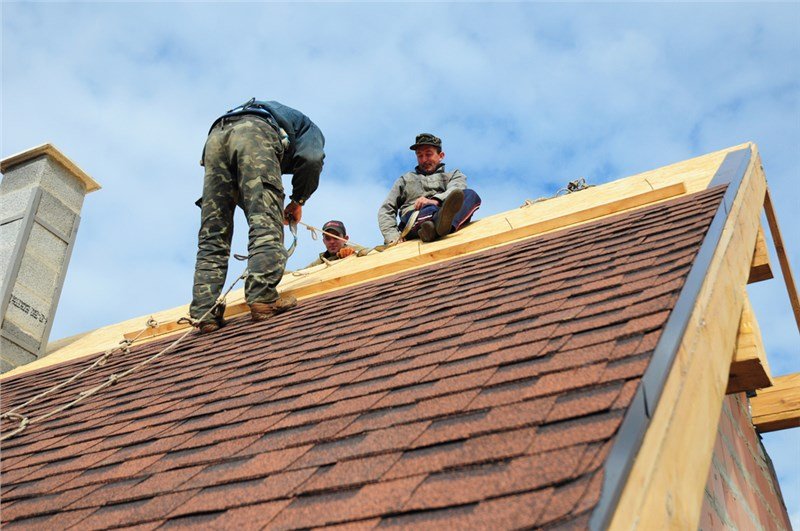Maintaining the integrity of your roof is essential for protecting your home from the elements and ensuring its longevity. While some roofing issues can be addressed with simple do-it-yourself (DIY) repairs, others require the expertise of a professional roofing contractor. In this comprehensive guide, we’ll explore the ins and outs of DIY roof repair, including when it’s appropriate to handle repairs yourself and when it’s best to call in the professionals.
Assessing the Situation
Before deciding whether to tackle a roof repair yourself or enlist the help of a professional, it’s crucial to assess the severity of the issue. Start by visually inspecting your roof for signs of damage, such as missing or damaged shingles, leaks, or sagging areas. If the damage is minor and confined to a small area, it may be possible to address it yourself. However, if the damage is extensive or involves structural issues, it’s best to seek professional help.
DIY Roof Repair
DIY roof repair can be a cost-effective solution for minor issues that don’t require specialized knowledge or equipment. Common DIY repairs include:
- Replacing Damaged Shingles: If you notice missing or damaged shingles on your roof, you can replace them yourself using basic tools and materials available at your local hardware store.
- Sealing Small Leaks: Small roof leaks can often be repaired using roofing cement or sealant. Be sure to thoroughly clean and dry the area before applying the sealant to ensure a proper seal.
- Clearing Debris: Regularly clearing debris such as leaves, branches, and other debris from your roof and gutters can help prevent water buildup and potential damage to your roof.
With the right tools and materials, many homeowners can successfully complete these DIY repairs, saving time and money in the process.
Tools and Materials Needed for DIY Roof Repair:
- Safety gear (such as gloves, safety glasses, and non-slip shoes)
- Ladder
- Hammer
- Roofing nails
- Replacement shingles
- Roofing cement
- Caulk
- Roofing tar
- Roofing patch
When to Call a Professional
While DIY roof repair can be a viable option for minor issues, there are several scenarios where it’s best to enlist the help of a professional roofing contractor:
- Extensive Damage: If your roof has sustained extensive damage or is showing signs of structural issues, such as sagging or bowing, it’s essential to call a professional. Attempting to repair these issues yourself can be dangerous and may result in further damage to your home.
- Safety Concerns: Roofing work can be hazardous, especially for homeowners without experience or proper safety equipment. If your roof is steeply pitched or you’re uncomfortable working at heights, it’s safer to hire a professional who has the training and expertise to perform the job safely.
- Warranty Coverage: If your roof is still under warranty, attempting DIY repairs may void the warranty coverage. Professional roofing contractors are familiar with warranty requirements and can ensure that any repairs are performed in accordance with manufacturer specifications.
- Time and Convenience: DIY roof repair projects can be time-consuming, especially if you’re unfamiliar with the process or encounter unexpected challenges along the way. Hiring a professional allows you to save time and avoid the hassle of completing the repairs yourself.
Choosing the Right Contractor
When hiring a professional roofing contractor, it’s essential to do your research and choose a reputable company with a track record of quality workmanship and customer satisfaction. Here are some tips for selecting the right contractor for your roof repair needs:
- Check Credentials: Verify that the contractor is licensed, insured, and bonded. Look for certifications from reputable industry organizations, such as the National Roofing Contractors Association (NRCA) or the Better Business Bureau (BBB).
- Get Multiple Estimates: Obtain quotes from multiple roofing contractors to compare prices and services. Be wary of unusually low bids, as they may indicate subpar workmanship or the use of inferior materials.
- Ask for References: Request references from past clients and follow up with them to inquire about their experience working with the contractor. Reading online reviews and testimonials can also provide insight into the contractor’s reputation.
- Review the Contract: Before hiring a contractor, carefully review the terms of the contract, including the scope of work, payment schedule, and warranty coverage. Ensure that all verbal agreements are documented in writing to avoid misunderstandings later on.
By following these guidelines and knowing when to tackle DIY roof repairs yourself and when to call in the professionals, you can maintain the integrity of your roof and protect your home for years to come. Whether you’re patching a few missing shingles or addressing more extensive damage, safety should always be your top priority. If in doubt, it’s best to err on the side of caution and enlist the help of a qualified roofing contractor.


